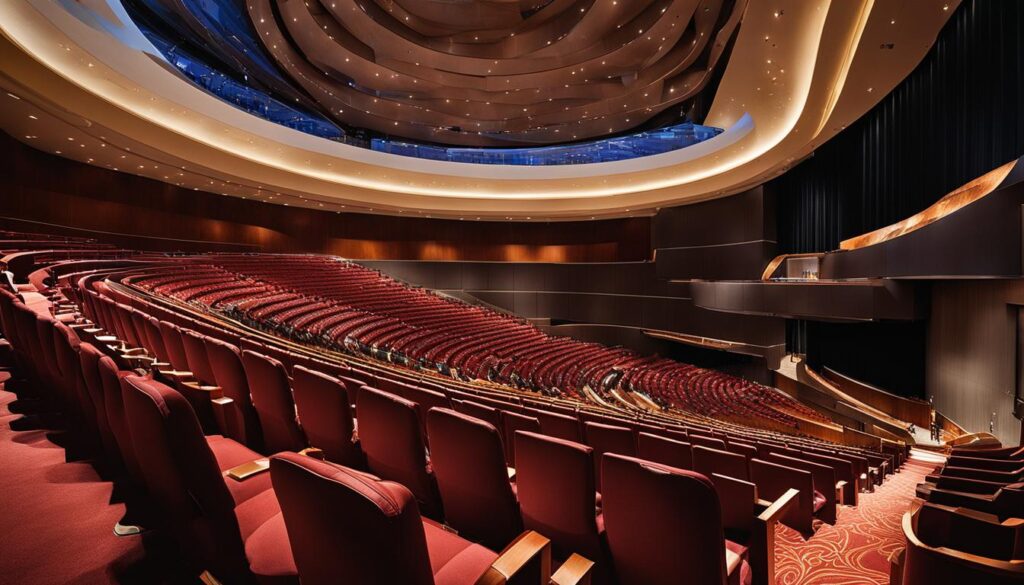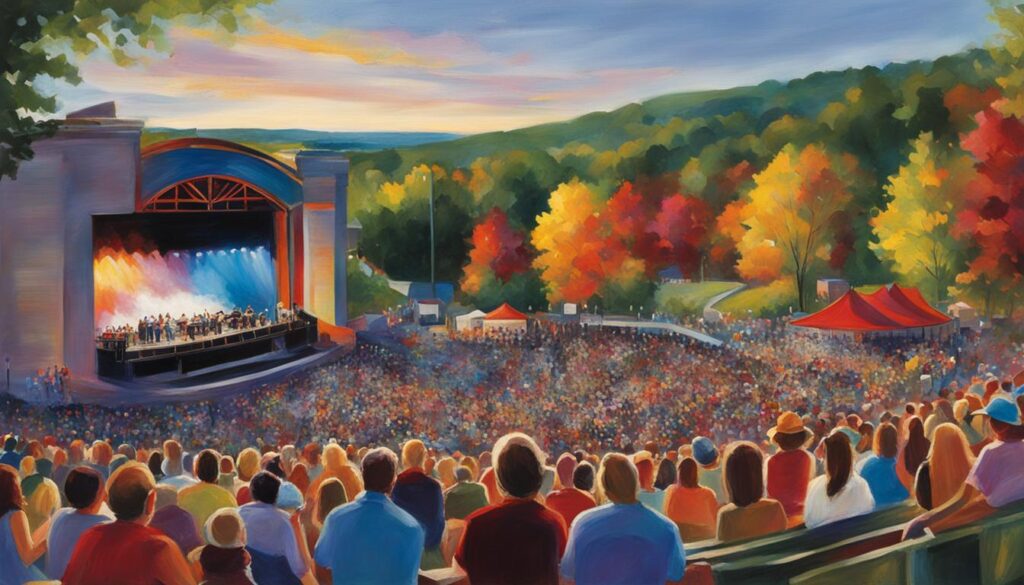As the executive director of a black-led arts non-profit in Omaha, I have become increasingly aware of the issues surrounding diversity and inclusion in our city’s cultural sector. Specifically, the actions of Arts Omaha, a consortium of cultural sector executives, have raised questions about the non-profit status of Omaha Performing Arts and the overall commitment to equity and inclusion within our arts organizations.
Arts Omaha has been accused of perpetuating a culture of white supremacy and segregation by excluding organizations led by BIPOC individuals, despite meeting the eligibility requirements. This has led to concerns about the true commitment to diversity and inclusion within Omaha’s vibrant arts community. Additionally, Arts Omaha has been criticized for prioritizing financial support for its member organizations over the needs of smaller organizations and those serving BIPOC communities.
Key Takeaways:
- Arts Omaha, a group of white executives running Omaha’s largest cultural institutions, has faced scrutiny for its lack of diversity and exclusivity.
- Questions have arisen about the non-profit status of Omaha Performing Arts and its commitment to equity and inclusion.
- Arts Omaha has been accused of perpetuating a culture of white supremacy and neglecting the needs of smaller organizations and BIPOC communities.
- Addressing these challenges is crucial to fostering a more transparent, equitable, and inclusive arts community in Omaha.
- Organizations like the Bemis Center for Contemporary Arts and Opera Omaha exemplify the potential for positive impact and engagement within the arts sector.
Arts Omaha: A Segregated Collective
Arts Omaha, a consortium of white executives running the largest cultural institutions in Omaha, has recently come under scrutiny for its lack of diversity and unwillingness to prioritize inclusivity. The group has been accused of perpetuating a culture of white supremacy by excluding organizations led by BIPOC individuals, even if they meet the eligibility requirements. This raises questions about the true commitment to equity and inclusion within the Omaha arts scene.
Furthermore, Arts Omaha has been criticized for prioritizing financial support for its member organizations while neglecting the needs of smaller arts charities and those serving BIPOC communities. This disparity in funding allocation further highlights the segregation within the collective. As a result, many community leaders and advocates are calling for greater transparency and accountability within Omaha’s arts organizations.
Arts Omaha’s exclusionary practices have hindered the growth and representation of diverse voices within the arts community. It is imperative that we challenge these inequities and work towards a more inclusive and representative Omaha arts scene.
Table: Funding Disparities among Omaha Arts Organizations
| Arts Organization | Total Funding (2019) | Funding Allocation for BIPOC-led Organizations |
|---|---|---|
| Arts Omaha Members | $10 million | $1 million |
| Smaller Arts Charities | $2 million | $200,000 |
| BIPOC-led Organizations | $500,000 | N/A |
As demonstrated in the table above, there is a clear disparity in funding allocation among Omaha arts organizations. While Arts Omaha members receive substantial financial support, smaller arts charities and BIPOC-led organizations are left with significantly fewer resources. This further perpetuates the segregation and exclusion within the Omaha arts community.
It is crucial that Omaha arts organizations, including Arts Omaha, take immediate action to address these issues and foster a more inclusive and equitable arts scene. This can be achieved through diversifying leadership, revising funding distribution policies, and actively engaging with BIPOC-led organizations and communities. By embracing diversity, Omaha can unlock the true potential of its arts community and create a vibrant and inclusive cultural landscape for all residents to enjoy.
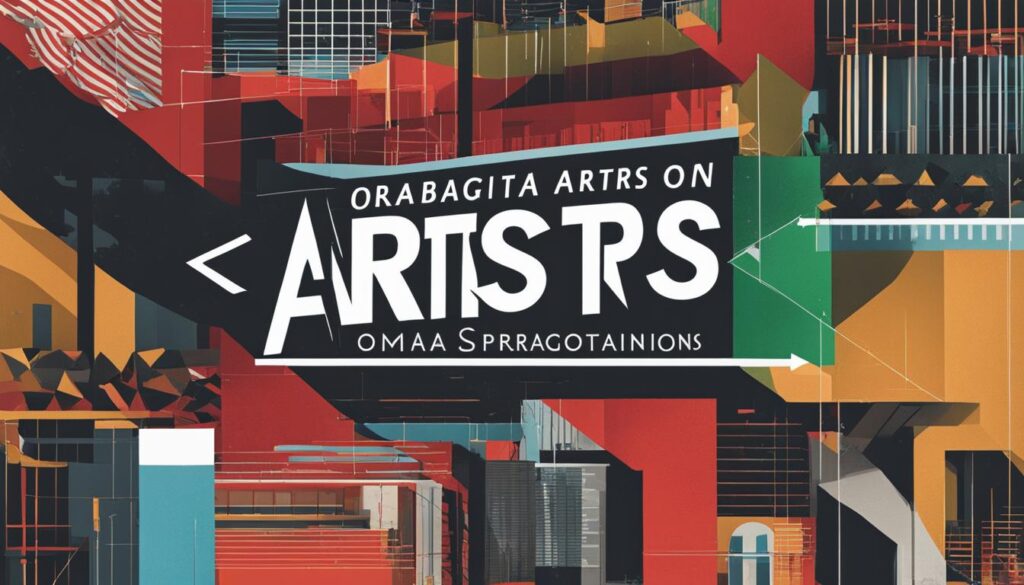

The Bemis Center for Contemporary Arts: Supporting Artists
The Bemis Center for Contemporary Arts is a renowned performing arts organization in Omaha that has been dedicated to supporting artists since its establishment in 1981. It provides artists with essential resources, including time, space, and support, to explore and experiment with their artistic endeavors. With its commitment to empowering artists, the Bemis Center has gained international recognition as a leader in artist communities and has significantly contributed to the cultural production in Omaha.
In addition to offering residencies and studios for artists, the Bemis Center also curates exhibitions, public programs, and collaborations with artists from around the world. This diverse range of programming ensures that the center remains at the forefront of contemporary art and provides opportunities for artists to connect, collaborate, and showcase their work to a broader audience.
The Bemis Center has also launched groundbreaking initiatives that further engage and support artists in the community. For example, the Holland Community Opera Fellowship provides a unique opportunity for opera singers to develop their skills and collaborate with other artists. The Sound Art + Experimental Music Program explores the intersection between sound, music, and visual arts, fostering innovation and pushing the boundaries of traditional art forms.
With its rich history and ongoing commitment to supporting artists, the Bemis Center for Contemporary Arts plays a crucial role in the Omaha arts community. By offering resources, opportunities, and a platform for artistic expression, the Bemis Center empowers artists and contributes to the vibrant cultural landscape of Omaha.
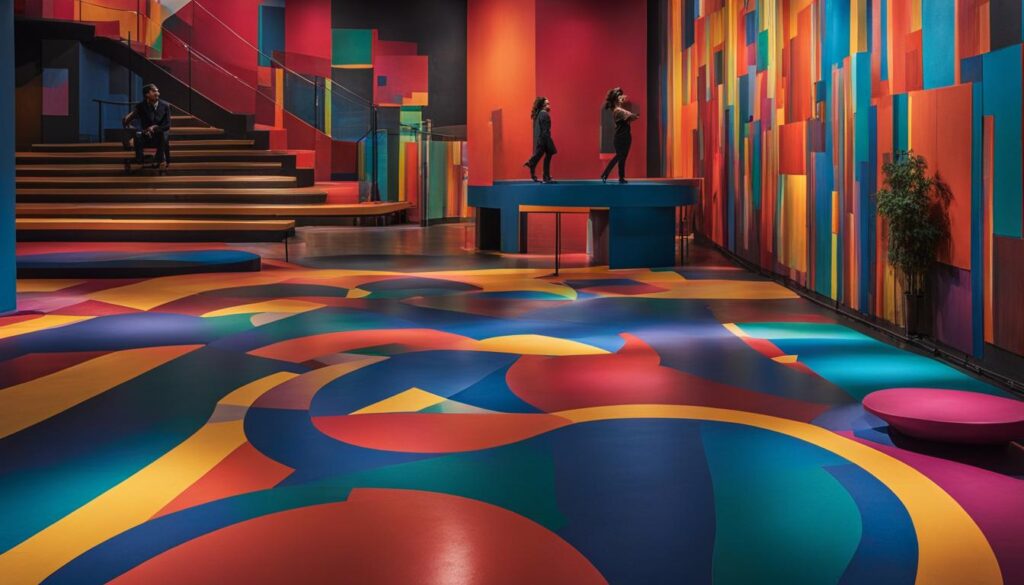

Table: Programs and Initiatives at the Bemis Center for Contemporary Arts
| Program/Initiative | Description |
|---|---|
| Holland Community Opera Fellowship | A program that provides opera singers with a collaborative and supportive environment to develop their skills and create innovative performances. |
| Sound Art + Experimental Music Program | An initiative that explores the intersection between sound, music, and visual arts, encouraging artists to experiment and push the boundaries of traditional art forms. |
Opera Omaha: Engaging the Community
Opera Omaha is a dynamic organization that goes above and beyond traditional opera performances to engage with the community in meaningful ways. Through innovative collaborations and a commitment to accessibility, Opera Omaha sparks curiosity and inspiration among its diverse audience.
One of the ways Opera Omaha fosters community engagement is through the Holland Community Opera Fellowship. This program breaks down the barriers between artists and audiences, providing a platform for true collaboration. Selected Fellows work closely with the Opera Omaha team, gaining valuable experience and contributing their unique perspectives to the creation of groundbreaking productions.
Opera Omaha also reaches out to the community through initiatives like Opera To Go, bringing opera performances to schools and community centers. This program aims to introduce the magic of opera to a wider audience, especially those who may not have had previous exposure to the art form. Additionally, the Poetry & Music Project combines opera and poetry, creating a powerful fusion of two art forms and enhancing the cultural landscape of Omaha.
Student Dress Rehearsals
One of the highlights of Opera Omaha’s community engagement efforts is the Student Dress Rehearsals. These exclusive events provide students with a unique opportunity to experience the behind-the-scenes process of creating an opera production. Students are invited to attend a final dress rehearsal, where they can witness the intricate staging, beautiful costumes, and powerful performances up close. This immersive experience allows students to develop a deeper appreciation for the art of opera and encourages future participation in the arts.
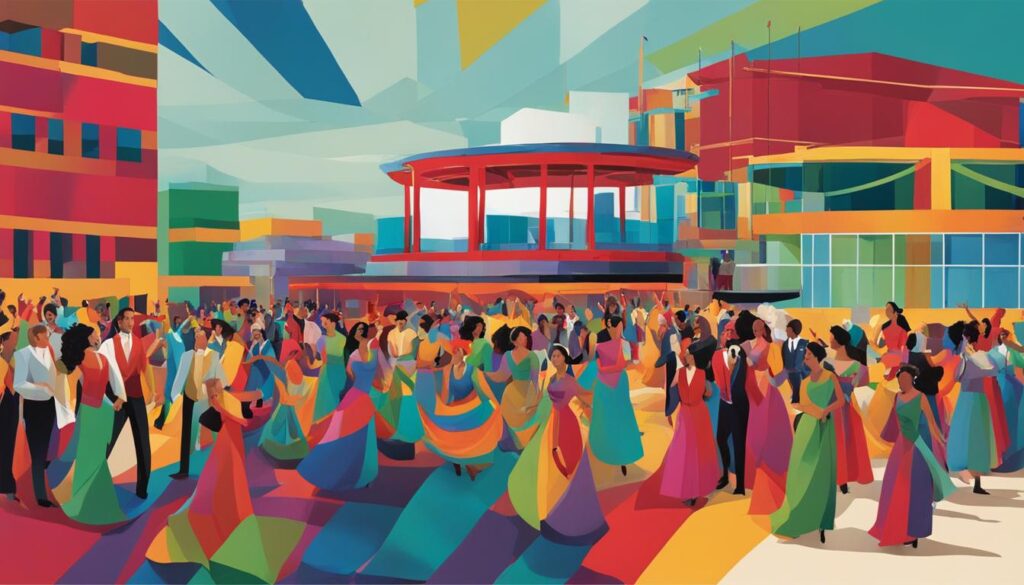

Opera Omaha’s commitment to community engagement and accessibility sets it apart as a leading nonprofit performing arts organization in Omaha. By pushing the boundaries of opera and fostering connections within the community, Opera Omaha continues to inspire and enrich the cultural fabric of Omaha.
Conclusion
The discussion around Omaha arts organizations and funding has shed light on the pressing need for greater transparency and equity within the city’s cultural sector. The experiences shared by the executive director of a black-led arts non-profit highlight the discrimination and culture of white supremacy that persist within Arts Omaha and the broader arts community.
However, amidst these challenges, there are shining examples of organizations dedicated to promoting inclusivity and engagement. The Bemis Center for Contemporary Arts stands out as a beacon of support for artists in Omaha, providing them with the necessary resources to explore and experiment with their work. Through exhibitions, public programs, and collaborations, the center has garnered international recognition and contributed significantly to the cultural production in Omaha.
Opera Omaha is another organization that goes above and beyond to engage the community through its programming. By collaborating with various partners and offering unique opportunities for audience participation, Opera Omaha brings opera to life in accessible and meaningful ways. Their initiatives like Opera To Go and Student Dress Rehearsals bridge the gap between artists and audiences, sparking curiosity and inspiration within the Omaha community.
As we move forward, it is essential for the entire community to address the challenges faced by Omaha arts nonprofits. By working towards greater diversity, inclusion, and equitable support for all organizations, we can create a thriving and vibrant arts scene that truly reflects the rich cultural tapestry of Omaha.
FAQ
Is Omaha Performing Arts a non-profit organization?
There are questions surrounding the non-profit status of Omaha Performing Arts and discussions about its commitment to diversity and inclusion in the arts sector.
What is Arts Omaha?
Arts Omaha is a consortium of cultural sector executives who oversee the largest arts institutions in Omaha.
Is Arts Omaha accused of perpetuating a culture of white supremacy?
Yes, Arts Omaha has been accused of excluding organizations led by BIPOC individuals, which raises concerns about equity and inclusion in Omaha’s arts community.
What does the Bemis Center for Contemporary Arts do?
The Bemis Center for Contemporary Arts supports artists by providing them with time, space, and support to explore and experiment with their work.
How does Opera Omaha engage with the community?
Opera Omaha goes beyond traditional opera performances by collaborating with partners and engaging the community through initiatives like the Holland Community Opera Fellowship, Poetry & Music Project, and Student Dress Rehearsals.
What are the challenges facing the arts sector in Omaha?
The arts sector in Omaha is grappling with issues of transparency, equity, and inclusion, as well as the need for greater support for all arts organizations in the city.
